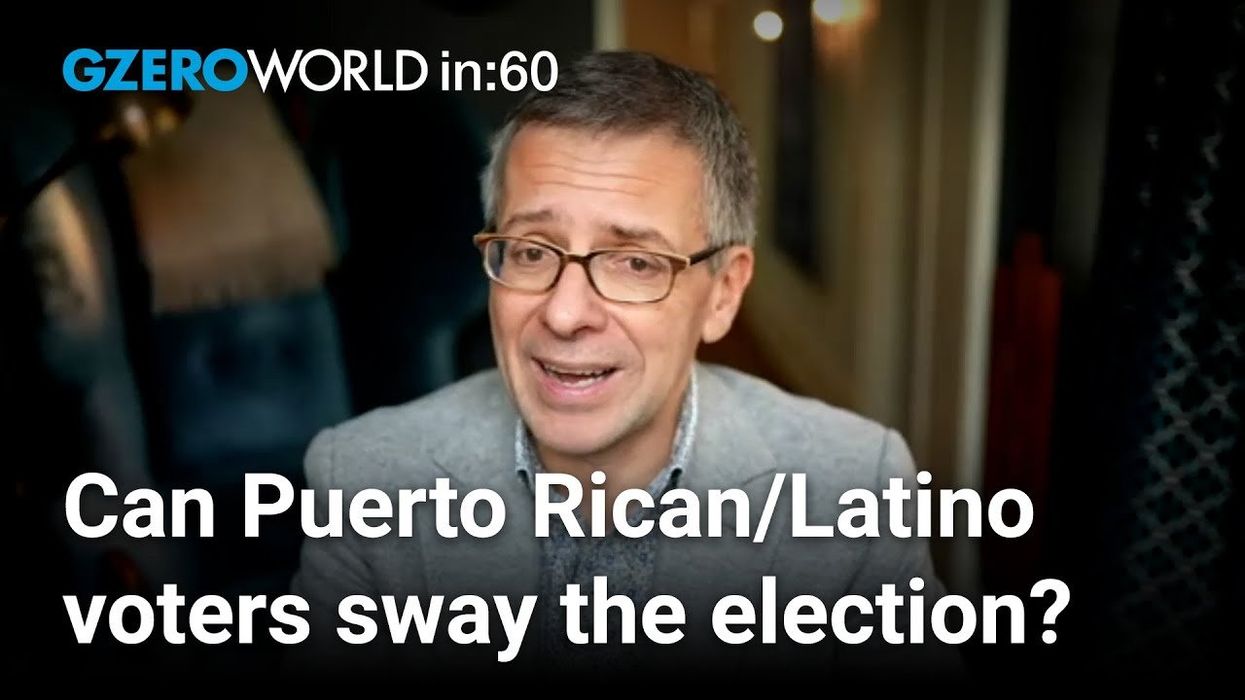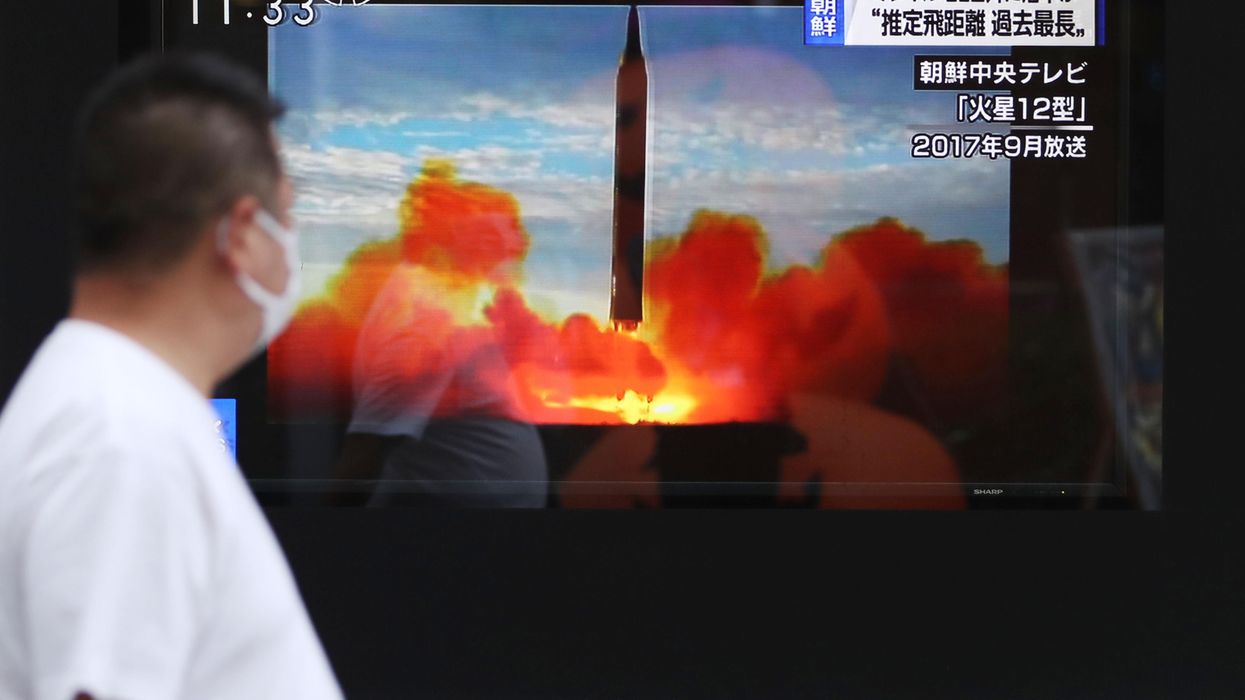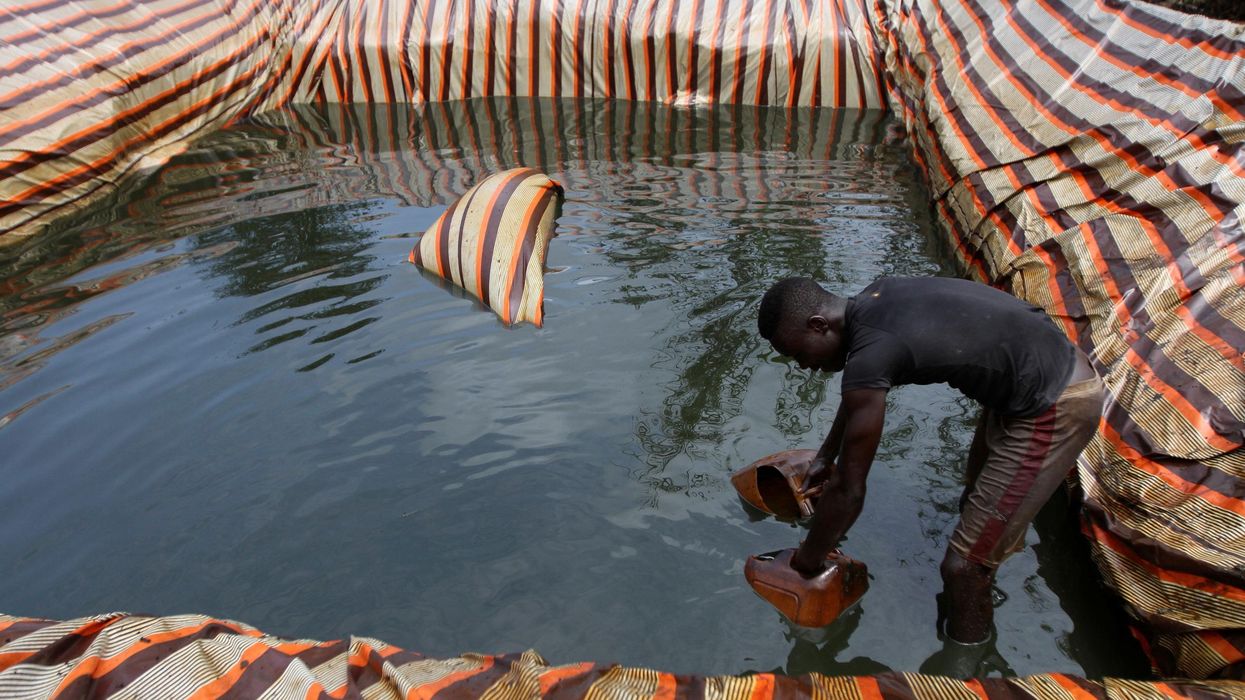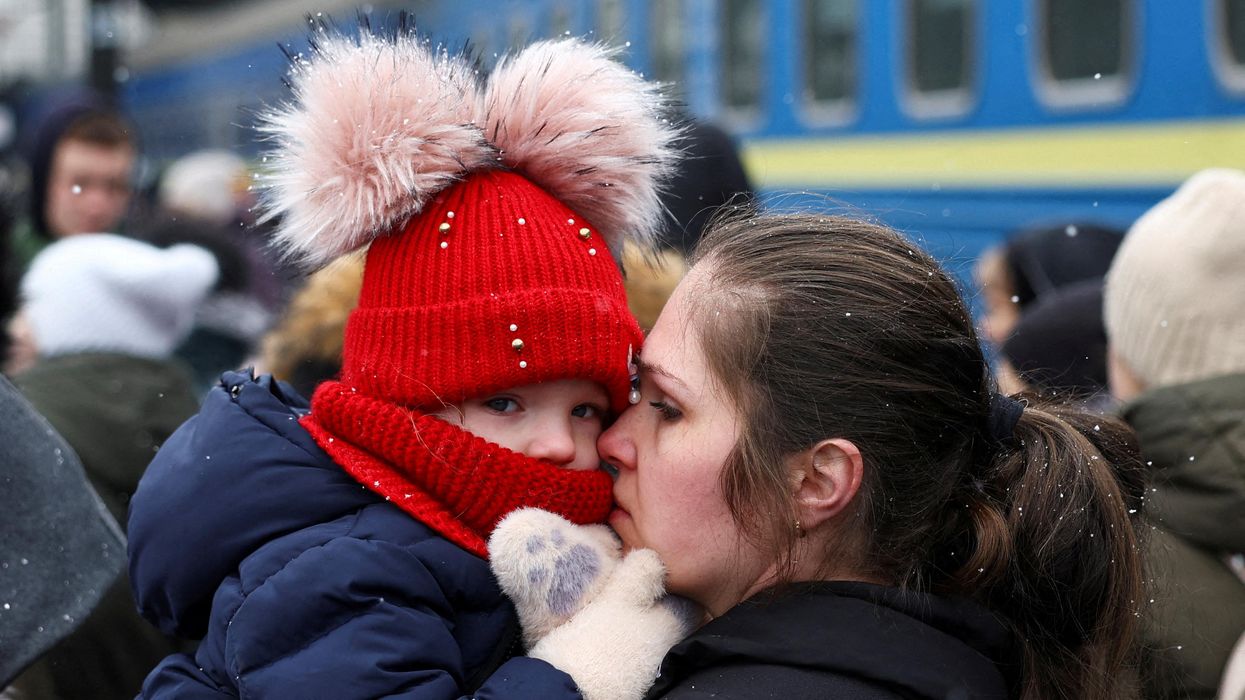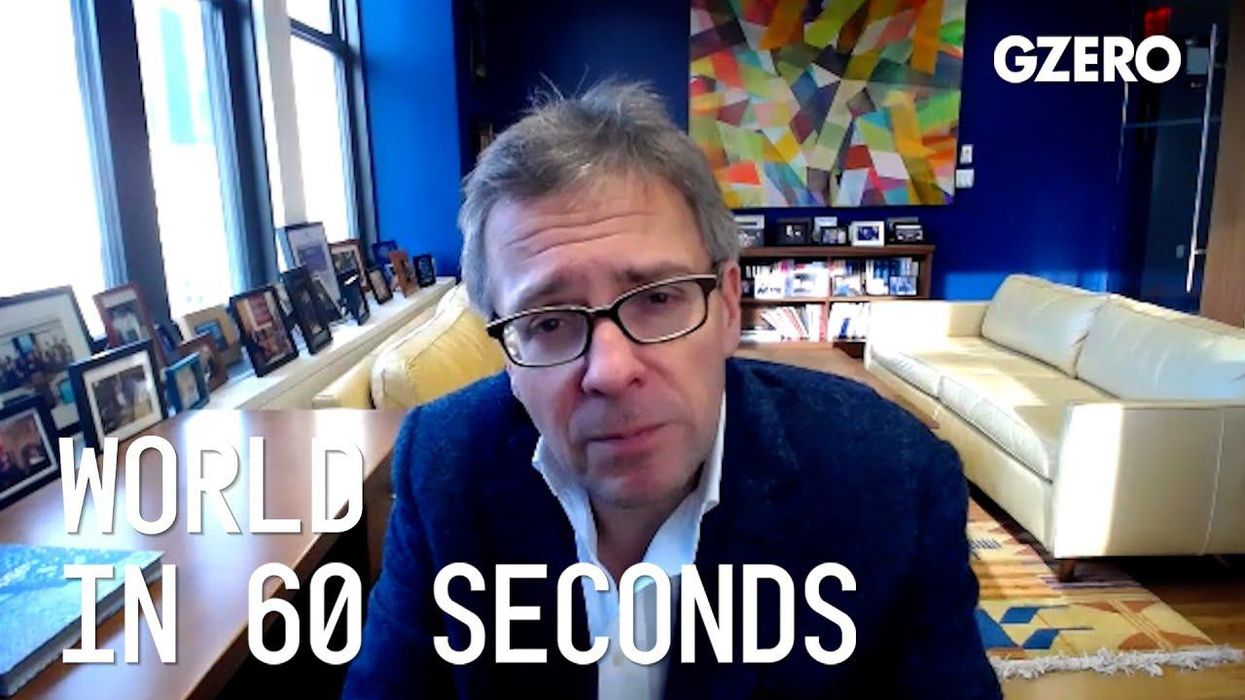ask ian
Will offensive Puerto Rico remarks hurt Trump's chances?
With the US election a week away, why do Israelis prefer a Trump presidency? How might the results of the Georgia elections and subsequent protests affect political stability and EU membership prospects? To what extent will Puerto Rico and Latino voters sway the election in Kamala Harris's favor? Ian Bremmer shares his insights on global politics this week on World In :60.
Oct 29, 2024
